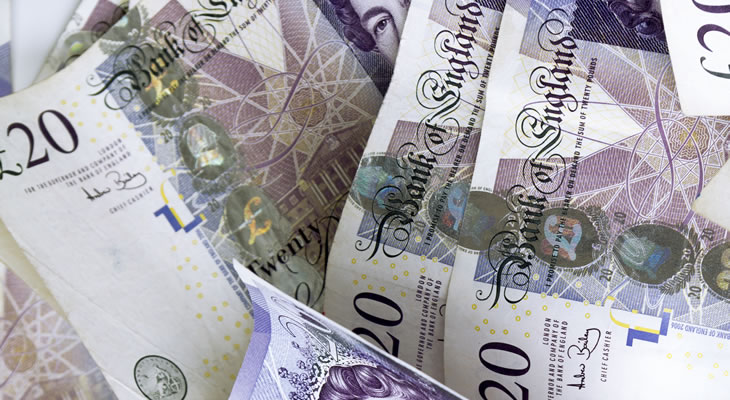Underwhelming UK Labour Market Report Leaves Pound Sterling Euro (GBP/EUR) Exchange Rate on Back Foot
A disappointing UK labour market report saw the Pound Sterling to Euro (GBP/EUR) exchange rate stumble on Tuesday morning.
Although the unemployment rate fell from 3.9% to 3.8% in September this reflected a decline in the number of economically active individuals, given a sharp monthly drop in the employment figure.
Investors were also deterred by an unexpected dip in average weekly earnings, with weaker wage growth likely to limit economic activity as consumer spending falls.
As Tej Parikh, chief economist at the Institute of Directors, noted:
‘With many firms facing elevated costs and difficulties raising their productivity game, the margins to raise pay are eroding. A further acceleration in wages now looks unlikely.’
All in all, this offered a fresh incentive to the more dovish members of the Bank of England (BoE), suggesting that monetary loosening is still on the table.
Unexpectedly Improved ZEW Economic Sentiment Indexes Shore up Euro (EUR) Exchange Rates
Support for the Euro (EUR), meanwhile, picked up in response to a better-than-expected set of ZEW economic sentiment indexes.
Confidence in both Germany and the wider currency union showed solid signs of improvement in November, with the overall Eurozone index bouncing back from -23.5 to -1.0 on the month.
This defied expectations of a fresh decline, suggesting that ongoing global trade tensions are not weighing on Eurozone sentiment as much as markets anticipated.
Even so, this improvement is unlikely to be enough to avoid a further slowdown in economic momentum during the final quarter of 2019.
The release of the third quarter German gross domestic product could put renewed pressure on EUR exchange rates on Thursday.
If the Eurozone’s powerhouse economy delivers another quarterly contraction in growth the mood towards the Euro is likely to sour sharply.
Given the decline seen in the second quarter another negative reading here would signal that Germany entered a state of technical recession, leaving the single currency exposed to selling pressure.
Falling UK Inflation Forecast to Raise BoE Interest Rate Cut Odds
The odds of a BoE interest rate cut are likely to increase further on the back of Wednesday’s UK consumer price index data, though.
With forecasts pointing towards the headline inflation rate easing from 1.7% to 1.6% demand for the Pound looks set to weaken.
As long as inflation continues to fall short of the BoE’s 2% target this would lend support to the case for a 2020 rate cut.
While markets have already priced in higher odds of the BoE cutting interest rates again in the near future a weaker inflation rate could still see the GBP/EUR exchange rate trending lower.
However, if inflation holds steady on the year this may encourage the Pound to recover some of its lost ground.


Comments are closed.